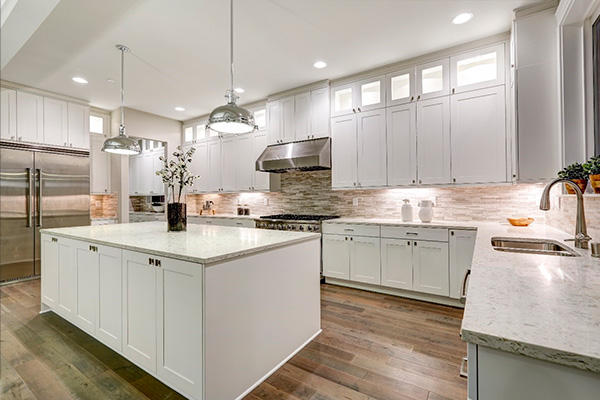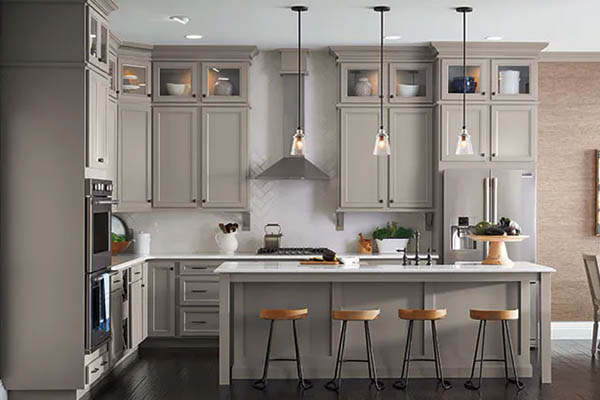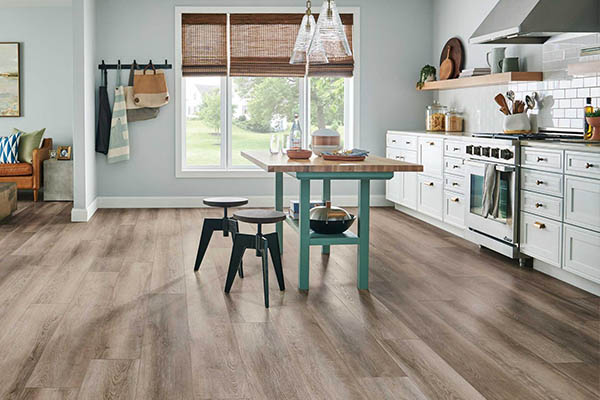SOAPSTONE countertops PROS and CONS
General information
Soapstone (also known as steatite or soaprock) is a metamorphic rock composed mainly of the magnesium-rich mineral talc, and it gets its name because it feels like a bar of soap to the touch. Due to its natural softness, the soapstone has been loved by sculptors and carvers for thousands of years. Nowadays, soapstone is most frequently used for various types of interior surfacing, such as countertops, floor tiles, shower bases, kitchen sinks, and fireplace surrounds.
As with any other material, Soapstone has pros and cons, and its longevity may depend on maintenance and area of application.
Pros of Soapstone countertops
- Heat Resistance: One of the key advantages of soapstone is its high heat resistance. A boiling hot pot or heated pan can be placed on the counter without damaging it.
- Maintenance: Soapstone is a dense, non-porous material, which makes it highly resistant to liquids and stains and is easy to clean. Unlike porous Granite or Marble, Soapstone doesn’t require regular sealing. However, regular oiling is necessary to retain the original like-new appearance.
- Installation: Soapstone is a comparatively delicate material, mainly because of its high talc content, so it can be cut with woodworking tools that are equipped with diamond-impregnated blades. An experienced DIY-er might do the installation. The soapstone doesn’t commonly come in a slab large enough for the average kitchen, meaning there will be seams that need professional fitting and filling.
Cons of Soapstone countertops
- Price: Soapstone is an expensive surface material, generally less priced than marble but more than granite and engineered stone.
- Durability: One of the essential drawbacks of soapstone is its softness, which makes it susceptible to mechanical damage by knives and other sharp and heavy objects. Also, it wears unevenly: the busiest areas fade faster than other parts of the countertop. On the other side, Soapstone is a type of stone that can be resurfaced; therefore, with little maintenance and care, it can last for decades.
- Look and diversity: Despite its appealing veining structure, similar to marble, soapstone has a limited range of primarily dark color options, so it might not fit some contemporary design trends. Brighter shades of soapstone are available. However, they will contain more talc, which makes the material softer and more susceptible to damage.
- Patina: One of the peculiarities to keep in mind regarding the soapstone: it will develop a dark patina. Some people appreciate this quirk and consider it an advantage, while others dislike it entirely.

Conclusion
Soapstone countertops are highly resistant to heat, impermeable, don’t require much maintenance, and do not need to be sealed. If treated with care, Soapstone will last for a long time, and therefore, it should not be overlooked as an option if a dark-colored countertop is part of your kitchen arrangement.




